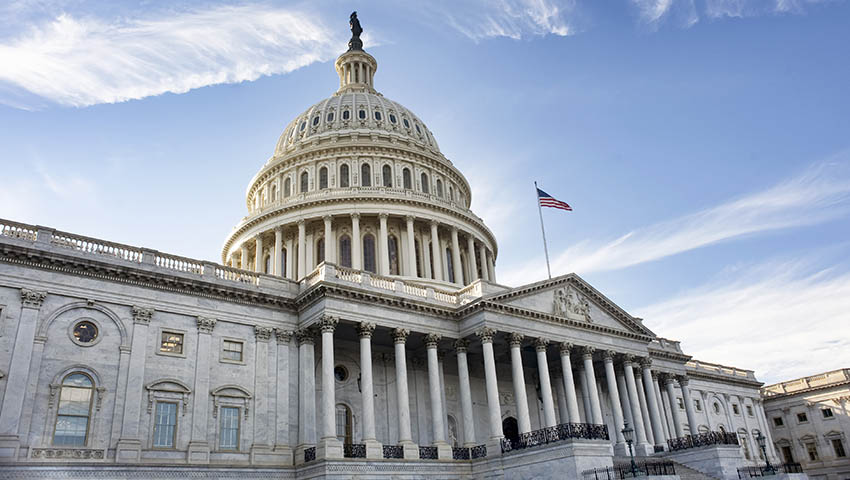Following the 70th anniversary of the ANZUS treaty, retired Naval officer Chris Skinner analyses whether the treaty is capable of tackling the technological and geo-economic realities of the 21st century.
The treaty signed by the US, New Zealand and Australia in San Francisco 70 years ago known as ANZUS has been acknowledged widely and reaffirmed by the leaders of the US and Australia along with copious commentary in media and learned publications. This is yet another such comment, but with perhaps an unconventional perspective that is relevant to the readership of Defence Connect.
Fundamentally, ANZUS continues to be based on an affirmation of shared interests in strategic defence from rising Asian militarism such as Japan had exhibited in WW2 (and since then by North Korea and now increasingly by the People's Republic of China [PRC]); belief in the United Nations Charter; and the commitment to consult together when their territory, independence or security is threatened, and to meet the common danger when an armed attack occurs against any of them (from Professor Rory Medcalf ‘ANZUS has resharpened its focus’ Australian Financial Review, 1 September 2021. The AFR is also celebrating its 70th birthday this year).
Based on this framework, it is entirely logical that prime minister John Howard invoked ANZUS in supporting the US following the September 11, 2001 attack in New York that was the basis for military intervention in Afghanistan, now concluded in a less than triumphant fashion as the world settles down to work with their Taliban government.
For a new take on ANZUS, I offer the following concepts that I believe are consistent with the framework described above while reflecting the technological and geo-economic realities of the 21st century.
Firstly, from Australia’s perspective we need to set aside the prospect of armed invasion of our mainland as a likely scenario, and instead focus on what are our national economic and security interests and how might they be attacked within the terms of ANZUS. Australia is utterly dependent on maritime commerce both for exported commodities and products as well as the import of vital products including oil fuel on which we are still far too reliant.
Then there is the intercourse of people as immigrants, students, tourists and businesspeople. This has been greatly restricted by the COVID pandemic but will resume in the foreseeable future as no amount of information and communications technology can fully replace the intimacy and emotional rapport of human proximity. This does raise the reliance on space-based and undersea cable telecommunications and the vulnerability to the interruption of these connections.
But perhaps most important of the issues for ANZUS is the uncertainty and fears engendered by the rejection by PRC of the accepted rule-of-law and rules-based order that has been constructed through the UN over the past seven decades. China rejects the United Nations Convention on the Law of the Sea [UNCLOS] as a basis for territorial claims for most of the South China Sea. This will almost certainly lead to armed conflict at some stage, I believe.
The other big issue cited for China is the invasion of Taiwan, to which the US and recently also Japan have committed to aid in their defence from invasion. However, Taiwan does not directly fall within the scope of ANZUS and is not an automatic cause for Australian military involvement as was the 9/11 attack on the US.
More broadly, the recent Afghanistan experience and incessant cold-shoulder of Australia by China have caused some to question the commitment of the US to meet its undertakings to allies such as Japan and to Australia and New Zealand through ANZUS. I see no evidence of any slackening of this commitment from the US and therefore do not share the doubts raised by some commentators on the decline of the US.
On the contrary, the Biden administration has faced the reality of an unwinnable expeditionary intervention in Afghanistan and completed the withdrawal that was initiated by president Donald Trump. That this was somewhat chaotic should not distract us from considering its significance in enabling the US and partners to work together to face the ever-growing threat from China in all domains, many of them not really in evidence when ANZUS was signed. Space and cyber were the field of science fiction and are now dominant in the economic as well as security concerns of nations as much as individuals.
And therein lies the strength of ANZUS. It was framed in such a way that it has and will continue to evolve to meet the current and future needs of signatories for which we should all be grateful.
________________________________________________________________________________
Christopher Skinner served 30 years in the Australian Navy as a weapons and electrical engineer officer in six surface warships, including deployments to South-East Asian Treaty Organisation, the Vietnam War and surveillance of the North-West Indian Ocean. He served overseas on training and ship modernisation programs and was seconded to the United States Naval Sea Systems Command in Washington DC to manage the test and evaluation of the lead ship of a joint Australian-US frigate program. He is a member of several organisations and institutes engaged in geopolitics, technology and submarine matters, and is a councilor of the Australian Institute of International Affairs, NSW division. The views expressed above are entirely those of the author and are not endorsed by any of the organisations of which he is a member.



